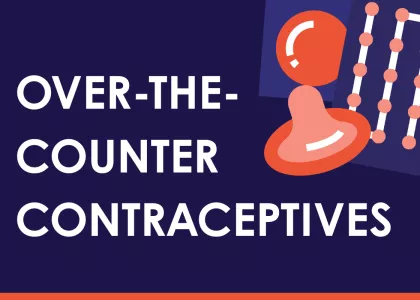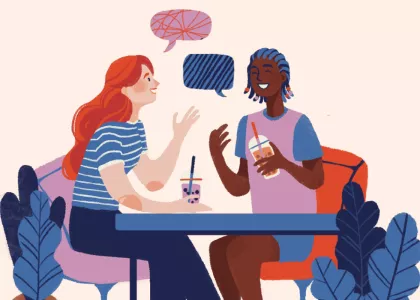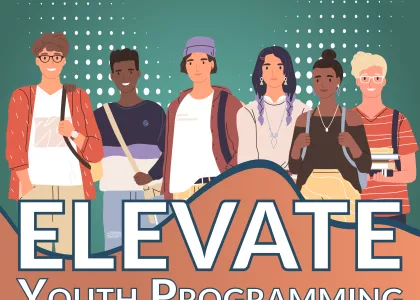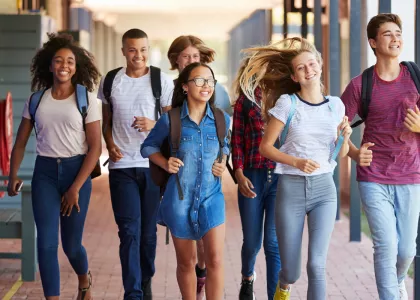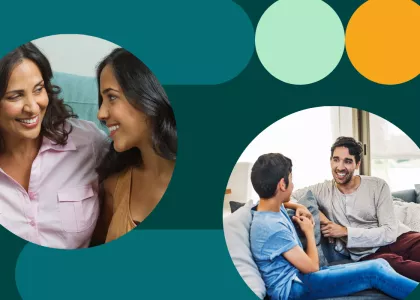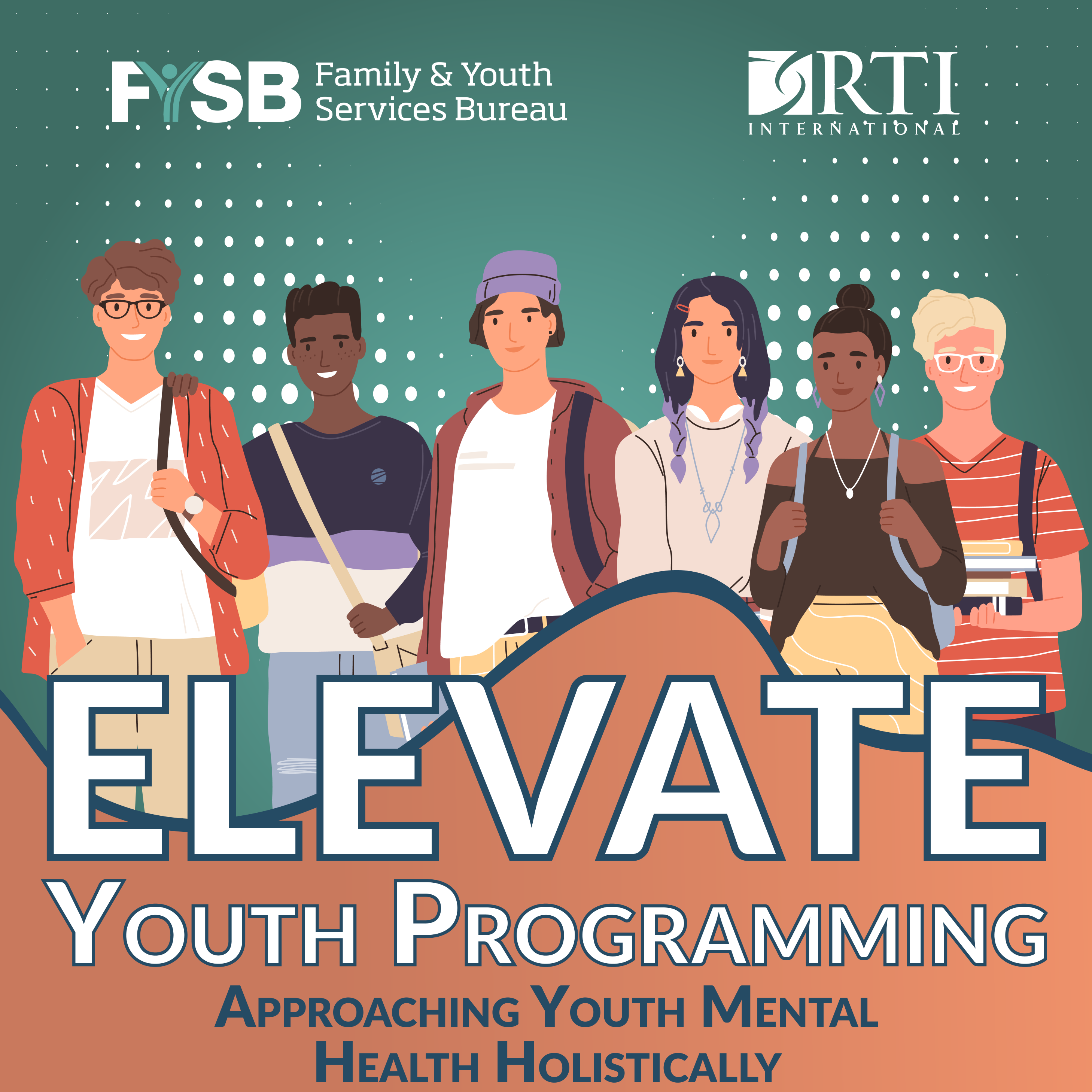
Approaching Youth Mental Health Holistically
In this episode, Approaching Youth Mental Health Holistically, we speak with Cherry Yamane and Hannah Rackers from Child Trends to discuss mental health challenges youth face, the landscape of mental health care services, and strengths-based approaches to support youth resilience by creating spaces where youth can thrive. Mental health challenges are increasing in youth, with 1 in 6 youth under the age of 18 experiencing a mental health condition (Whitney & Peterons, 2019). According to Youth Risk Behavior Surveillance data, one in three high school students experienced persistent feelings of sadness or hopelessness, and one in six reported making a suicide plan in the past year (CDC, 2023). The recent U.S. Surgeon General’s report on Protecting Youth Mental Health emphasizes that youth should understand that mental health and well-being are essential components of overall health and that they should learn to recognize, manage, and learn from emotions (Murthy, 2021). Covering factors that may affect mental health outcomes is essential for youth-serving programs because mental health challenges often lead to increased risk-taking behaviors, including sexual risk behaviors. Personal Responsibility Education Program (PREP) programming provides an opportunity to arm youth with tools that may reduce the potential impact of a mental health condition, including tools to identify changes in well-being and resources to restore well-being such as self-care practices and support across a spectrum of services.
Cherry Y.E.W. Yamane, MPH, is a Kanaka Maoli (Native Hawaiian) scholar-practitioner with over 9 years of experience working with Indigenous communities. Their experience is grounded in land-based, cultural practices, and drawing on ancestral wisdom as a source of healing and thriving. Their scope of public health practice includes mental and behavioral health, substance use, harm-reduction, trauma-informed care, and positive youth development. They are dedicated to the creation of a community-based, culturally driven intervention aimed at addressing mental and behavioral health concerns among Hawaiian youth, adolescents, and families.
Hannah Rackers, M.P.H., is a Research Scientist whose work focuses on maternal and youth mental health and well-being. She has experience in psychiatric research, working directly with youth and adults with severe mental illness in case management and care coordination, and supporting program implementation for behavioral health promotion and treatment programs. She uses her skills and experience to support projects and provide training and technical assistance around program implementation, monitoring and evaluation data capacity building, data collection, and quantitative analysis. Her research interests include youth development, reproductive health, mental health, community health improvement, and systems transformation.
The Elevate Youth Programming podcast was developed by RTI International and funded by FYSB. The Elevate Youth Programming content does not reflect the opinions of FYSB nor its training and technical assistance contractors but offers topics to provoke thought and provide grantees with tips and strategies to enhance programming.
References
Abrams, Z. (2023, January 1). Kids’ mental health is in crisis. here’s what psychologists are doing to help. Monitor on Psychology. https://www.apa.org/monitor/2023/01/trends-improving-youth-mental-health
Centers for Disease Control and Prevention (CDC). (2023). Mental health. https://www.cdc.gov/healthyyouth/mental-health/index.htm
Clayton, S., Speiser, M., Hill, A. N., & Manning, C. (2023). Mental Health and Our Changing Climate: Children and Youth Report 2023. https://www.apa.org/news/press/releases/2023/10/mental-health-youth-report-2023.pdf
Create joy and satisfaction. Mental Health America. (n.d.). https://www.mhanational.org/create-joy-and-satisfaction
Developmental competencies and resilience. Developmental Competencies and Resilience | Youth.gov. (n.d.). https://youth.gov/youth-topics/youth-mental-health/definitions-developmental-competencies
Hickman, C., Marks, E., Pihkala, P., Clayton, S., Lewandowski, R. E., Mayall, E. E., Wray, B., Mellor, C., & Van Susteren, L. (2021). Climate anxiety in children and young people and their beliefs about government responses to climate change: A global survey. The Lancet Planetary Health, 5(12), e863–e873. https://doi.org/10.1016/S2542-5196(21)00278-3
Fostering resilience in youth and encouraging ... Substance Abuse and Mental Health Services Administration. (n.d.). https://www.samhsa.gov/sites/default/files/nc-youth-resilience-mental-health.pdf
Majeed, H., & Lee, J. (2017). The impact of climate change on Youth Depression and Mental Health. The Lancet Planetary Health, 1(3). https://doi.org/10.1016/s2542-5196(17)30045-1
Murthy, V. H. (2021). Protecting youth mental health: The U.S. Surgeon General’s Advisory. https://www.hhs.gov/sites/default/files/surgeon-general-youth-mental-health-advisory.pdf
Robinson, E. (2022, July 1). Youth and Fentanyl: What every family needs to know. OHSU News. https://news.ohsu.edu/2022/07/01/youth-and-fentanyl-what-every-family-needs-to-know
Sussex Publishers. (n.d.). The Hidden Power of Joy. Psychology Today. https://www.psychologytoday.com/us/blog/the-power-slow/202211/the-hidden-power-joy
Whitney D. G., & Peterson M. D. (2019). US national and state-level prevalence of mental health disorders and disparities of mental health care use in children. JAMA Pediatrics, 173(4), 389–391. https://doi.org/10.1001/jamapediatrics.2018.5399
World Health Organization. (2021, November 17). Mental health of adolescents. World Health Organization. https://www.who.int/news-room/fact-sheets/detail/adolescent-mental-health.
Youth resilience. Center for the Study of Social Policy. (n.d.). https://cssp.org/wp-content/uploads/2018/08/YT_Youth-Resilience.pdf
Youth risk behavior surveillance — United States, 2019. Center for Disease Control and Prevention. (n.d.). https://www.cdc.gov/healthyyouth/data/yrbs/pdf/2019/su6901-H.pdf
Resources List
- Adolescent Suicide Prevention: An Introduction to the Risk Factors of Suicide and Resources for Vulnerable Youth
- Early Serious Mental Illness Treatment Locator | SAMHSA
- Incorporating and Prioritizing Youth Mental Health in Sexual and Reproductive Health Programming
- Kids and teens | Mental Health America (mhanational.org)
- MediaWise Toolkit
- Mental Health and Well-Being
- NAMI HelpLine | NAMI: National Alliance on Mental Illness
- Step Out of the Frame: Social Media and Our Mental Health
- The Jed Foundation
- Social Media and Teen Mental Health: Guide for Parents & Caregivers to Support Healthy Social Media Use Among Teens
- Supporting Your Teen’s Mental Health: Tips for Parents
- Weathering the Storm: How Supportive Adults can Promote Youth Health and Wellness
Helplines
- Crisis Lifeline, 988 (call or text). The 988 Suicide & Crisis Lifeline is a national network of local crisis centers that provides free and confidential emotional support to people in suicidal crisis or emotional distress 24 hours a day, 7 days a week in the United States.
- Crisis Text Line. Text HOME to 741741 to reach a volunteer Crisis Counselor.
- National Institute of Mental Health, 1-866-615-6464. This is an automated voice information system with information on eating disorders, depression, anxiety, and panic disorders.
- National Mental Health Association, 1-800-969-6642. From anxiety disorders to depression, attention deficit, suicide, and substance abuse, this group (which has with over 300 affiliates nationwide) can give a boost to anyone who feels like they might need it.
- Teen Link, 1-866-TEENLINK (833-6546). A help line for teens, by teens that provides information and resources to youth and their families on preventing youth suicide and can also connect callers to adult crisis counselors.
